Fantastic Fest Part the First: Eileen, Saltburn, Tiger Stripes, Out of Darkness, and Falling Stars
The first of two dispatches from Austin.
Hello from sunny (read: swelteringly hot) Austin, where I’m attending Fantastic Fest for the first time. In addition to a handful of reviews for Variety — including opening-night selection The Toxic Avenger and unnecessary prequel Pet Sematary: Bloodlines — I’ll be writing about some (most?) of the movies I’m seeing in the esteemed digital pages of this here newsletter. Here are five movies that stood out to me in one way or another over the festival’s first two days, with another dispatch to follow once my time here has come to a close:
“Things feel very real here, don’t they?” asks Rebecca (Anne Hathaway) early in Eileen, William Oldroyd’s playful adaptation of the novel by Ottessa Moshfegh. She’s talking about the Massachusetts town where this ‘60s-set story takes place, but her statement applies equally to the increasingly sinister film itself. Thomasin McKenzie stars in the title role, a secretary at a juvenile detention facility where the glamorous Rebecca is hired as the new psychologist, and what initially appears to be a sapphic romance à la Carol (their hair colors even align with their corresponding characters) twists itself into something much darker. One of the inmates has been locked up for brutally murdering his father, the motivation for which Rebecca can’t help puzzling over; Eileen, for her part, is too busy crushing on her new colleague to think of anything else (relatable, tbh).
For a few seconds at a time we’ll occasionally see what Eileen wishes were happening rather than what is happening. Some of these brief reveries are sexual, but more of them are violent — in one she’s the victim, but the true subject of her repressed anger would appear to be her perpetually drunk father (Shea Whigham). To say that you won’t guess where Eileen ends up is an understatement, with Oldroyd (as well as Moshfegh, who co-wrote the screenplay with her husband Luke Goebel) nimbly shifting from one mode to another in a jaw-dropping instant. “I bet you have beautiful dreams,” Rebecca says to Eileen in the snow one night. “I bet you dream of other worlds.” What is a great movie if not a beautiful dream of another world?
Blue blood runs cold in Saltburn, Emerald Fennell’s jet-black comedy that begins as a class satire before morphing into something far too explicit to be labeled as such. Oliver (Barry Keoghan, great as ever) is friendless and on scholarship at Oxford when he meets Felix (Jacob Elordi), with whom he’s instantly smitten; rich, handsome, and much nicer than his snobby friends, Felix invites Olly to spend the summer with him after his unlikely new friend experiences a filial tragedy. “Lots of people get lost in Saltburn,” the luxe estate’s icy butler says to Olliver midway through the film; it’s both a statement of fact and a warning. Fennell’s follow up to the superior Promising Young Woman is funnier than it is insightful — an ultra-rich English clan whose house is so historic and grand it has its own name is kind of low-hanging fruit at this point — but it is quite funny.
Oliver is reminded by several members of that clan that he is not and will never truly be part of it, which he seems to take as a dare. Fennell does a sly job of altering the interpersonal dynamics all throughout and not truly revealing her characters’ true natures until the very end, but she also overplays her hand in a third act that irreversibly reverses the clever-to-silly ratio. Both romantically and cinematically, it seems, to be infatuated is not to be in love.
Puberty is hard enough when it doesn’t involve a bodily transformation that would make Seth Brundle blush. Such is the fate of 12-year-old Zaffan in Tiger Stripes, who’s met with shame, not support, when she wakes up her mother upon getting her period for the first time: “You’re dirty now.” Zaffan attends a small all-girls school in rural Malaysia, a backdrop as beautiful as it is increasingly savage: strange noises emanate from the jungle at night, and folklore tells of a demon named Ina who resides in the trees and draws people to her like a mythological siren. Free-spirited and less beholden to the oppressive traditions that dictate daily life in her community than seemingly anyone else in that community, Zaffan is brought to life by the most impressive child performance in years; first-time performer Zafreen Zairizal is so charming, terrifying, and charismatic all at once that it’s a shame her IMDb page doesn’t list any upcoming roles. Zaffan’s two besties undergo a transformation of their own after learning that their friend is now menstruating — not into neither/nor monsters but rather a pair of Malay mean girls. When you’re a scared adolescent going through something you can’t hope to make sense of on your own, that may be even worse.
Less is more in Out of Darkness (formerly The Origin), a pleasingly barebones survival story set in an untamed land circa 45,000 years ago. Its early humans might disagree with that minimalist ethos, as food and shelter are in such nonexistent supply that they’re in existential peril well before something snatches one of them from the darkness surrounding their meager campfire one night. The starving ensemble in Andrew Cumming’s assured debut feature — they have names like Odal and Beyah — speak an invented language and make such grand pronouncements as “the danger in bringing light to a dark place is that you might find out what lies in the darkness” to one another. Whether due to logistical constraints (the film was shot in the Scottish highlands at the peak of the pandemic), a natural instinct for storytelling, or both, Cumming wisely observes the most important rule of making a movie that may or may not feature a monster: showing it as little as possible. He’s aided in that atmospheric approach by exceptional sound design and cinematography, both of which emphasize the ways in which this ragtag group both is and is not profoundly alone.
Should you ever come across the desiccated corpse of a witch, be sure not to spill beer on it — that would be an act of desecration, necessitating that you burn the hag’s remains before sunrise lest your family be marked for the rest of their lives. That’s just one lesson taught by Falling Stars, whose title refers not to meteors but to witches who use the cover of nightfall one October night every year to descend upon earth and harvest anyone unfortunate enough to be outside. Richard Karpala and Gabriel Bienczycki’s debut feature, which premiered at Locarno over the summer before making its way to Fantastic Fest, takes a more lore-heavy, matter-of-fact approach to its folkloric subject subject than any other movie in recent memory.
The presence and existence of witches is taken for granted in this tucked-away corner of the California desert, where three brothers test their luck on harvest night. When they accidentally trample a ceremony ring — sacred ground where, as one of them bluntly puts it, “witches make more witches” — their inadvertent trespass becomes even more grave. “Every year they’re hungrier,” one of them says, “and they’re coming earlier.” Other rules to remember: never look upon a witch, whether living or dead, for more than five minutes; in lieu of burning the corpse, which has fallen out of favor in recent years, a sacrifice can be made instead. There’s little in the way of overt scares or action in this grounded, decidedly un-supernatural approach to the supernatural. That’s very much a choice, as the kids say, but mostly a good one.






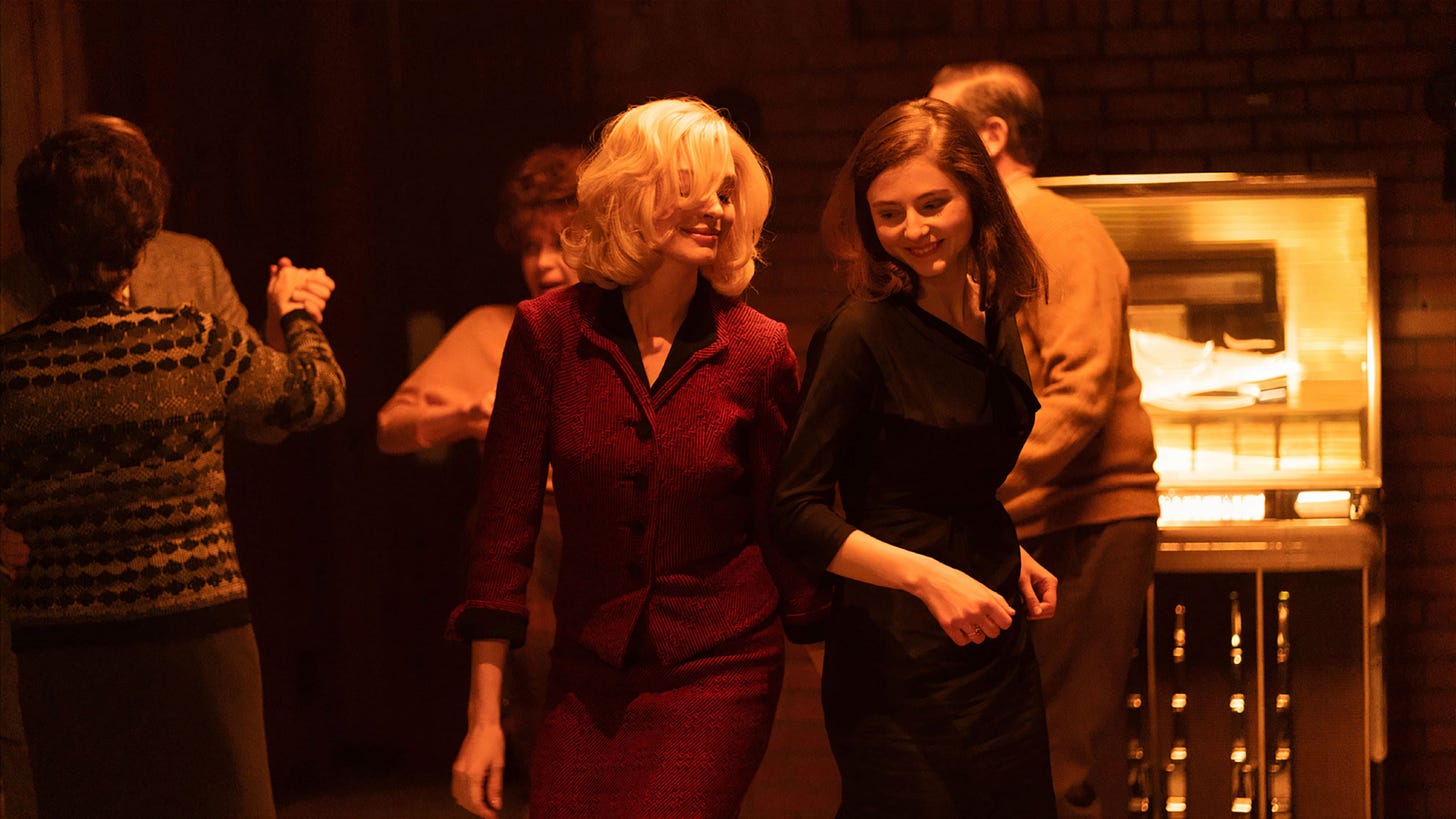
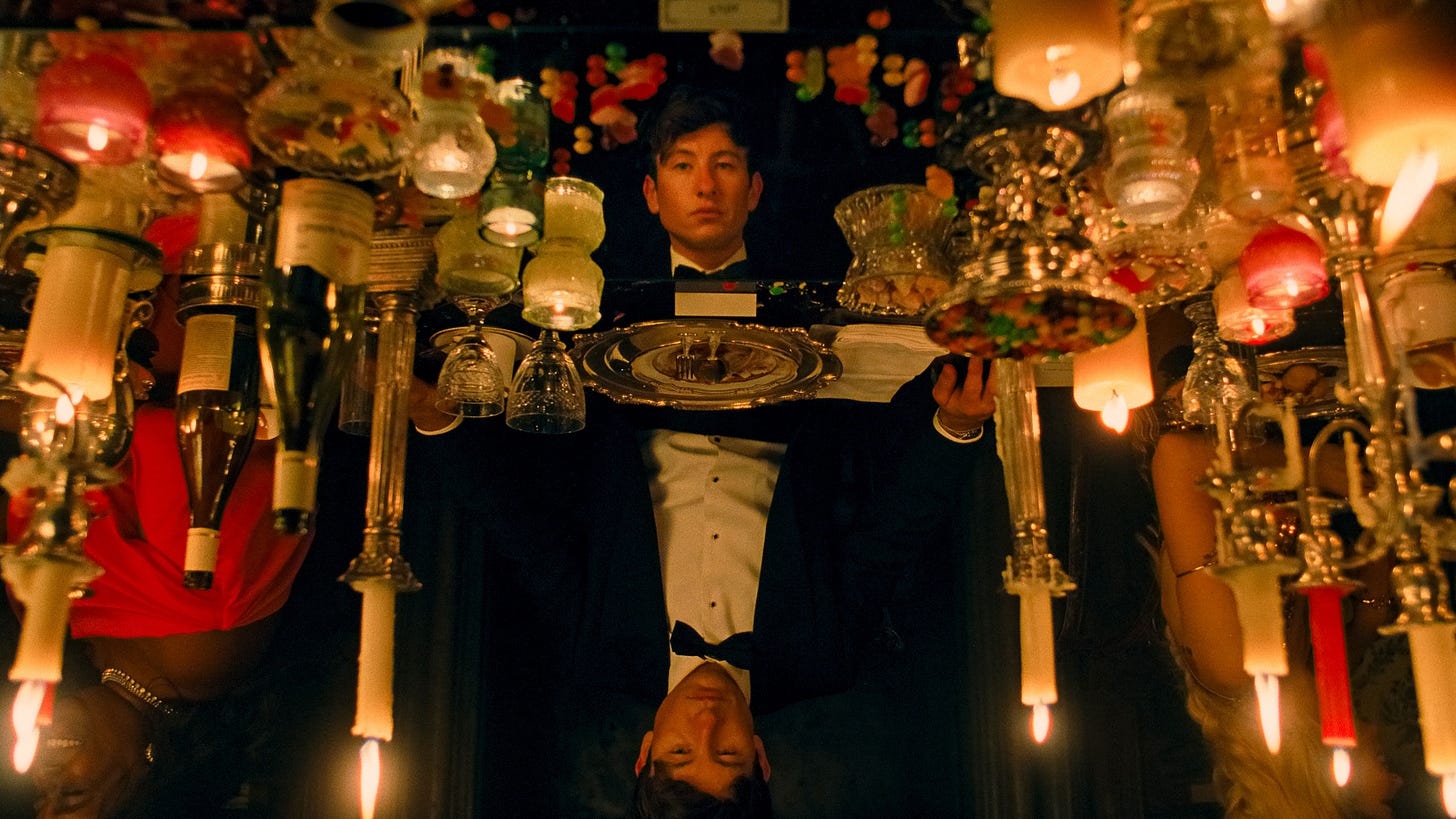
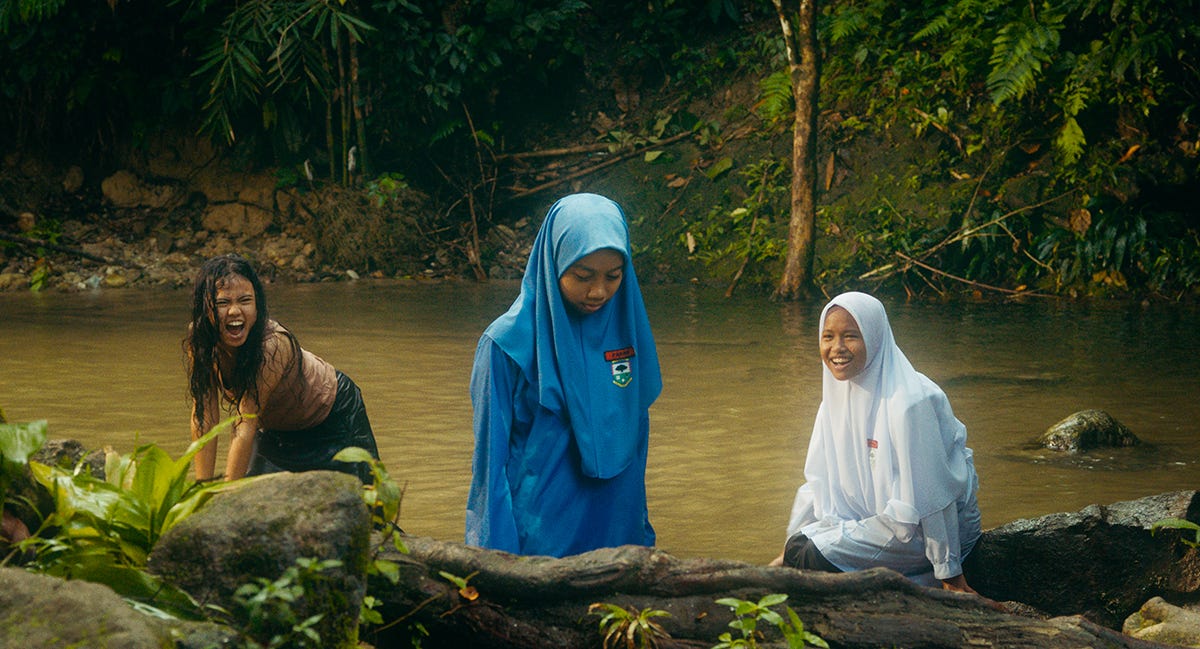
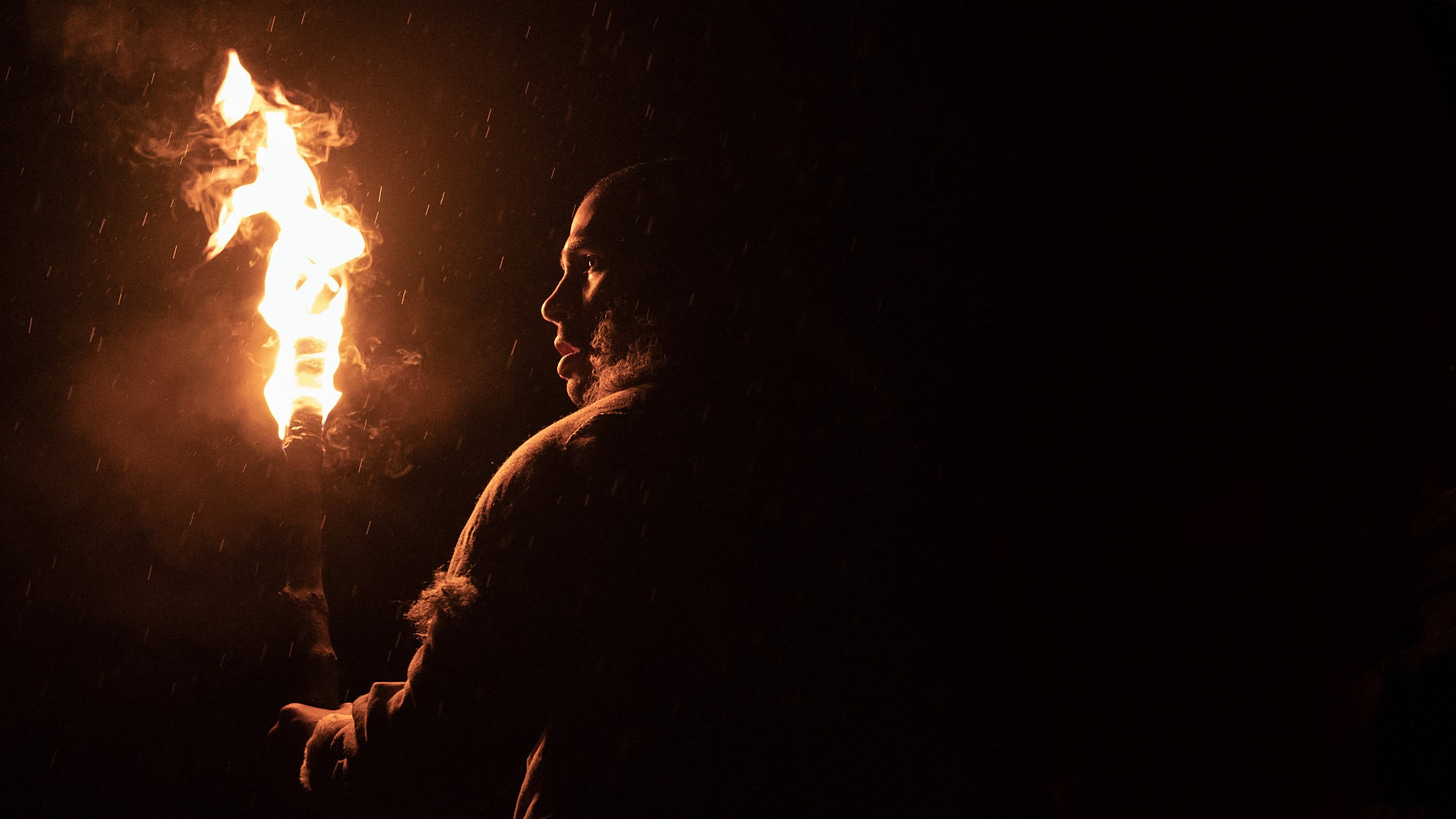
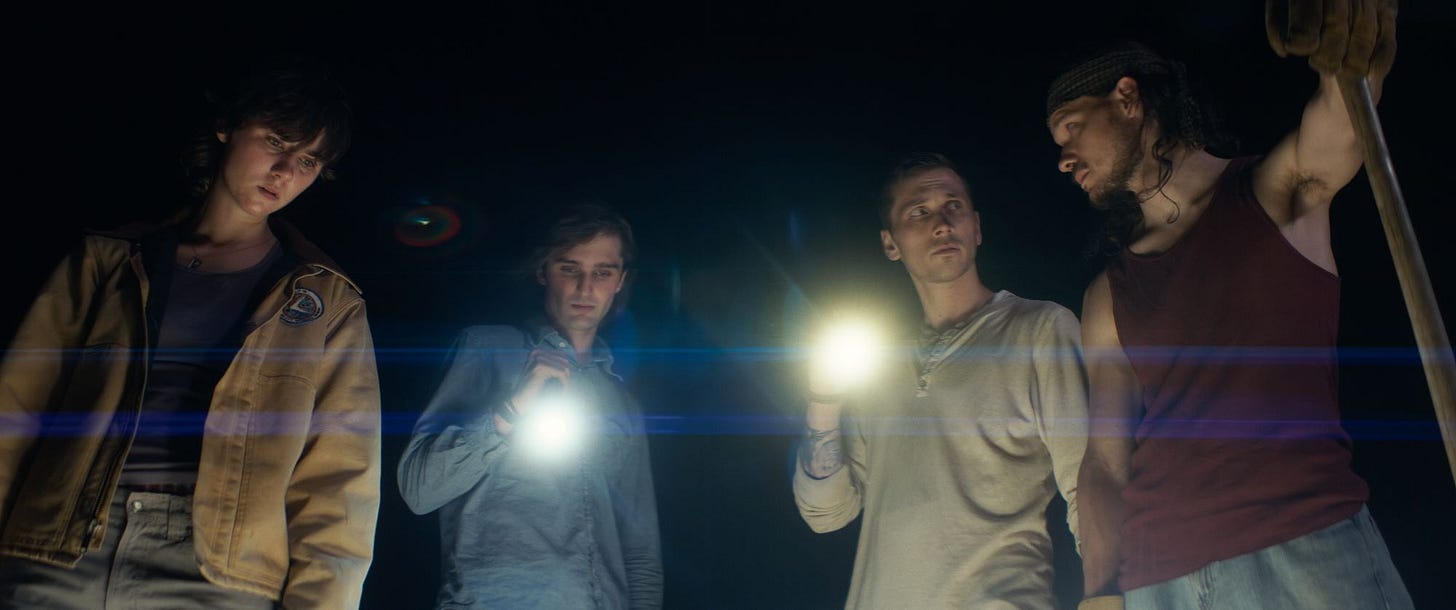
These all look awesome